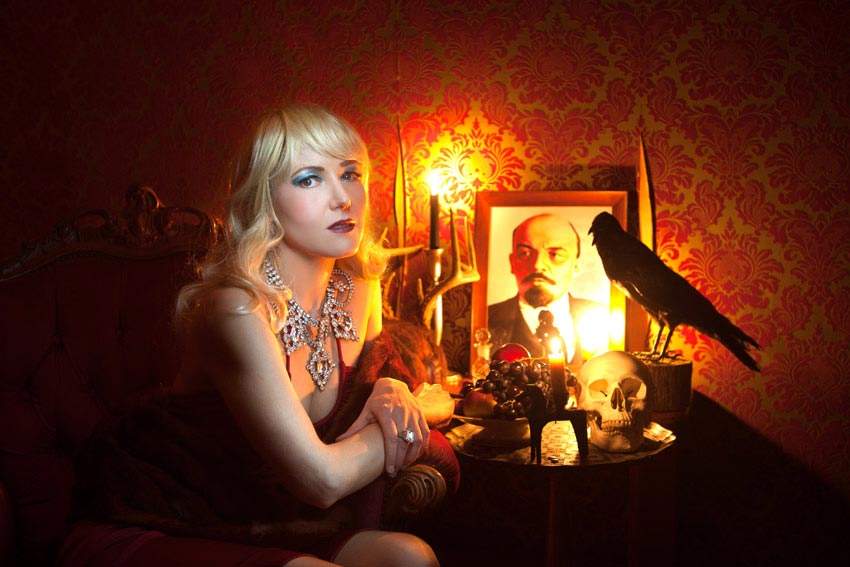Evolution, Revolution and the Mail Order Bride
A song of praise to the toil of Russian women, past and present.
Overview
Zulya Kamalova’s contemporary Russian folk music has earned her both an ARIA in Australia and the title of Honoured Artist of the Republic in her birth country, Tatarstan. Evolution, Revolution and the Mail Order Bride is her first foray into theatre, and the show, featuring Kamalova with support from a four-piece band, is a song of praise to the toil of Russian women, past and present.
During the show, Kamalova hops back and forth between two chief characters: Eva, the titular mail order bride who lives an affluent but dissatisfied life in modern day Toorak, and Inessa, an activist campaigning for the Bolshevik revolution in the early 1900s. The latter is based on real life revolutionary Inessa Armand, a close friend and purported lover of Lenin. This is not really a historical drama though. The characters’ lives are revealed only in snippets — mere brief vignettes between songs. The piece as a whole is largely atmospheric, eschewing detail on the characters in favour of generating broad emotional ambiences.
Much of the show is genuinely stunning. Kamalova is a performer of undeniable force and charisma, with a voice that can change moods like Melbourne weather. There are times when she sounds almost unearthly. The music has a charming gypsy swagger to it and the set is remarkable, a fantastical junkyard of artefacts, both modern and antique.
There are times though when I wonder if Kamalova could have done with some more support onstage. While she has no trouble commanding the audience’s attention with her singing voice, she seems less at ease acting, especially when managing transitions between scenes and characters. She also seem sometimes overshadowed by the ornate set which doesn’t always offer the best eye lines to its audience. As a result, there is a whole third character, a crone, who I almost never see because her scenes happen in a blocked part of the stage. There are also a number of gimmicks which don’t really add anything, like some sideline business with the band members or a sequence where Kamalova plays out the Adam and Eve story with dolls. While the intent of the piece has clearly been to give Kamalova’s music the theatrical treatment, it’s maybe gone a little overboard about being theatrical. Given that the show’s main drawcard is the singing, I wonder if it would have worked better as a more stripped back production.
There’s no denying the heart of the piece though, which is an impassioned statement on the broken dreams and thwarted aspirations of Russian women. There is a palpable sense of struggle, fatigue and frustration at the false promises of social change, and the stirring songs and passionate Slavic soul music only work to enhance this.





